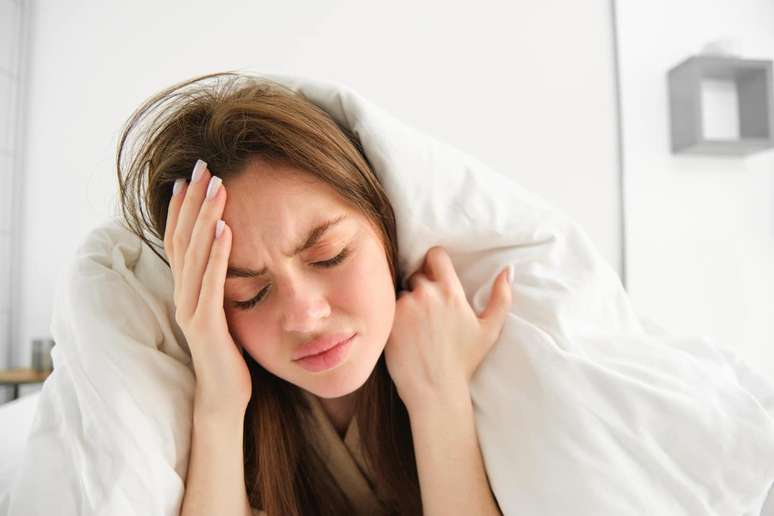Researchers sign the manifesto against the return of summer time
Summary
Scientists are speaking out against the return of daylight saving time, arguing that it harms the health of Brazilians.
The current government wants the return of daylight saving time, but scientists warn that this is harmful to the health of Brazilians. The manifesto signed by 26 scientists clearly opposes the measure. The professionals come from the area of chronobiology, a science responsible for the study of biological rhythms and phenomena.
They argue that the harm to health is greater than the expected economic benefits, since several body functions (such as sleep, appetite, and mood) are intimately connected to the cycle of light and darkness.
Therefore, changing the time forces the body to readjust abruptly, confusing the body’s synchronization. And this can also cause diseases such as sleep disorders, an increase in adverse cardiovascular events, mental and cognitive disorders and an increase in the number of road accidents in the first days after the move.
The poster cites a study conducted in 2017 by the Federal University of Rio Grande do Norte (UFRN) that explains how individuals deal with temporal transitions. In total 12,467 volunteers participated and the result showed that over 45% of the population experienced discomfort related to the change.
Read the poster
Poster against the return of summer time in Brazil
Daylight saving time was historically introduced with the logic of energy saving by aligning social activities with more hours of natural light throughout the day. However, several scientific studies indicate that the health harms caused by this change outweigh the presumed expected economic benefits, making the permanent abolition of daylight saving time crucial.
Over thousands of years, human biological rhythms have been aligned with the natural cycle of light and dark, regulating essential functions such as sleep, appetite, cardio-respiratory function, cognitive performance and mood. Exposure to natural light, especially in the morning, is essential for synchronizing our “biological clock” with the environment.
With the advancement of urban life and the use of artificial lights, especially electronic devices, this natural alignment has been undermined. The introduction of summer time further aggravates this dyssynchrony between biological rhythm and social and environmental timetables. The sudden change in “social hours” interferes with the body’s synchronization with the natural cycle, forcing the body to readjust.
Therefore, to preserve the health and well-being of the population, it is recommended to adopt solar time throughout the year, without seasonal adjustments (daylight saving time). This would avoid the negative effects promoted by summer time and promote greater alignment between our biological rhythms and social and environmental timetables, contributing to a healthier and safer society.
This manifesto reflects the position of scientists and chronobiology experts who, based on the most consolidated scientific evidence, support the abolition of summer time. This position is consistent with that held by international scientific societies, which have consistently advocated for the elimination of this practice worldwide.
It is worth noting that the manifesto is independent of any party political-ideological position, being based exclusively on a body of research demonstrating the negative impacts of summer time on human health, well-being and productivity.
They signed this manifesto: Cibele Aparecida Crispim (UFU), Carolina Virginia Macêdo de Azevedo (UFRN), Claudia Roberta de Castro Moreno (USP), Daniel Alves Rosa (UFG), Eduardo Henrique Rosa Santos (UFU), Elaine Cristina Marqueze (Fundacentro ), Felipe Gutiérrez Carvalho (HCPA), Fernando Mazzilli Louzada (UFPR), Fernanda Gaspar do Amaral (UNIFESP), Giovana Longo-Silva (UFAL), Gisele Akemi Oda (USP), Jefferson Souza Santos (UFPR), John Fontenele Araújo ( UFRN), Leandro Lourenção Duarte (UFRB), Lúcia Rotenberg (Fiocruz), Luísa Klaus Pilz (Charité Universitätsmedizin Berlin), Luiz Menna-Barreto (USP), Maria Nathália Moraes (UNIFESP), Maria Paz Loayza Hidalgo (UFRGS), Mario André Leocadio Miguel (Northumbria University), Maristela de Oliveira Poletini (UFMG), Michael Jackson Oliveira de Andrade (UEMG), Paula Bargi de Souza (UFMG), Rodrigo Antonio Peliciari Garcia (UNIFESP), Tatienne Neder Figueira da Costa (UFT) and Tiago Gomes de Andrade (UFAL).
Source: Canal Tech
Source: Terra
Ben Stock is a lifestyle journalist and author at Gossipify. He writes about topics such as health, wellness, travel, food and home decor. He provides practical advice and inspiration to improve well-being, keeps readers up to date with latest lifestyle news and trends, known for his engaging writing style, in-depth analysis and unique perspectives.





![Un Si Grand Soleil Preview: Eliot Between Life and Death!… What’s in store for the week of October 20-24, 2025 [SPOILERS] Un Si Grand Soleil Preview: Eliot Between Life and Death!… What’s in store for the week of October 20-24, 2025 [SPOILERS]](https://fr.web.img4.acsta.net/img/f1/c4/f1c410b63f2bfb1cd2353db8bf7e9d58.jpg)



